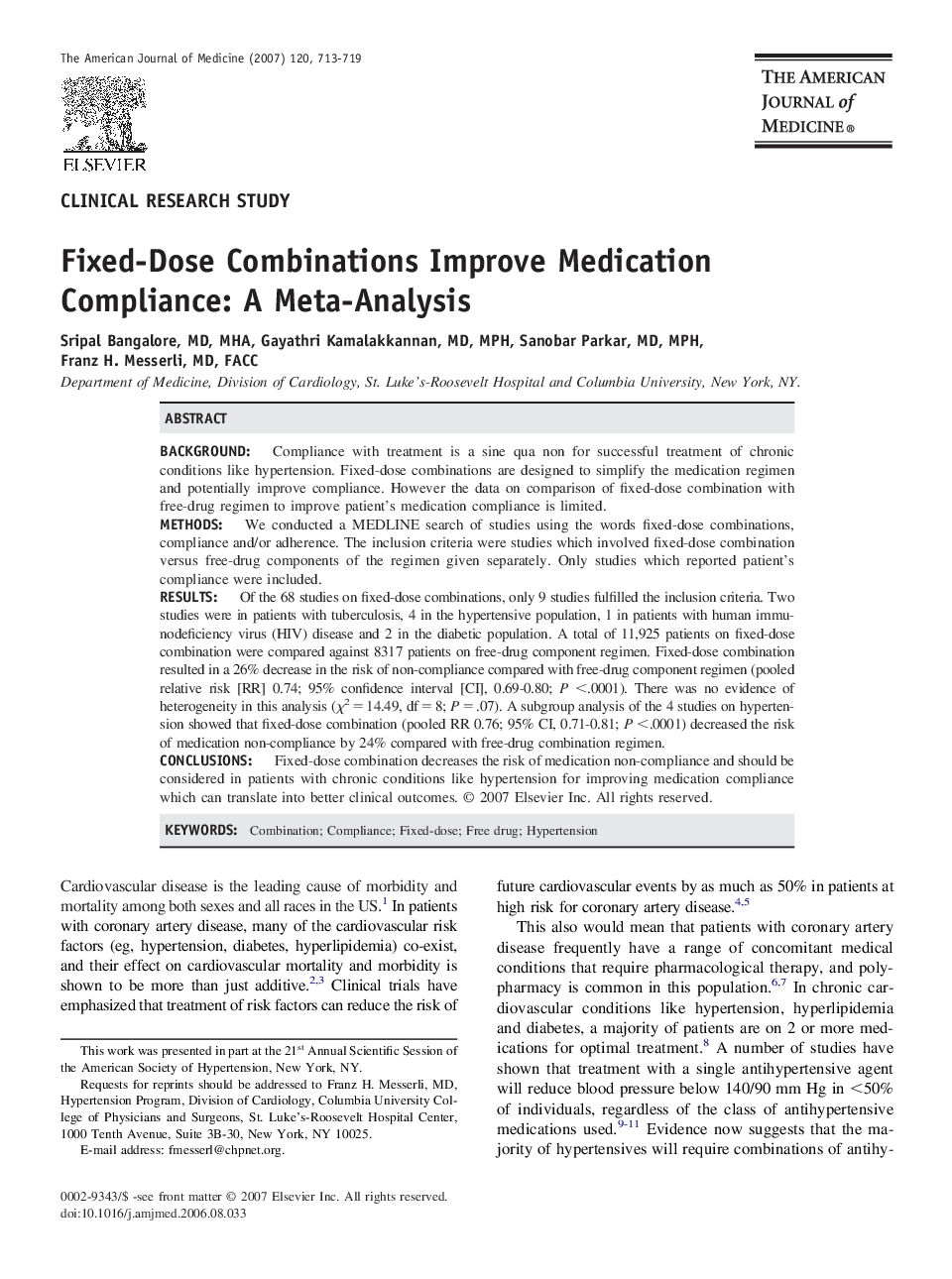| Article ID | Journal | Published Year | Pages | File Type |
|---|---|---|---|---|
| 2717600 | The American Journal of Medicine | 2007 | 7 Pages |
BackgroundCompliance with treatment is a sine qua non for successful treatment of chronic conditions like hypertension. Fixed-dose combinations are designed to simplify the medication regimen and potentially improve compliance. However the data on comparison of fixed-dose combination with free-drug regimen to improve patient’s medication compliance is limited.MethodsWe conducted a MEDLINE search of studies using the words fixed-dose combinations, compliance and/or adherence. The inclusion criteria were studies which involved fixed-dose combination versus free-drug components of the regimen given separately. Only studies which reported patient’s compliance were included.ResultsOf the 68 studies on fixed-dose combinations, only 9 studies fulfilled the inclusion criteria. Two studies were in patients with tuberculosis, 4 in the hypertensive population, 1 in patients with human immunodeficiency virus (HIV) disease and 2 in the diabetic population. A total of 11,925 patients on fixed-dose combination were compared against 8317 patients on free-drug component regimen. Fixed-dose combination resulted in a 26% decrease in the risk of non-compliance compared with free-drug component regimen (pooled relative risk [RR] 0.74; 95% confidence interval [CI], 0.69-0.80; P <.0001). There was no evidence of heterogeneity in this analysis (χ2 = 14.49, df = 8; P = .07). A subgroup analysis of the 4 studies on hypertension showed that fixed-dose combination (pooled RR 0.76; 95% CI, 0.71-0.81; P <.0001) decreased the risk of medication non-compliance by 24% compared with free-drug combination regimen.ConclusionsFixed-dose combination decreases the risk of medication non-compliance and should be considered in patients with chronic conditions like hypertension for improving medication compliance which can translate into better clinical outcomes.
